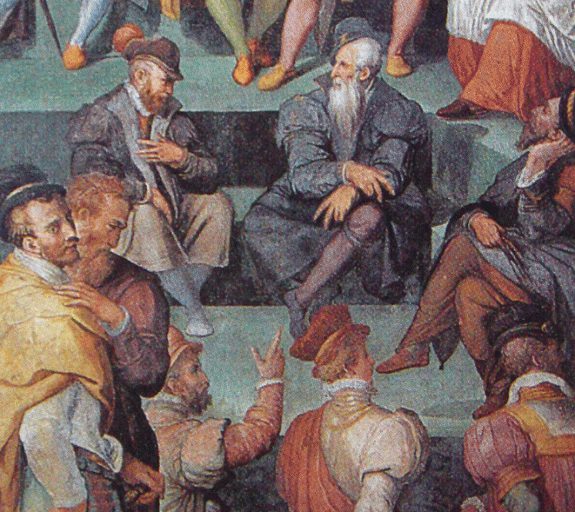The Renaissance and the Enlightenment were two significant cultural and intellectual movements in Europe. The Renaissance, from the 14th to the 17th century, was marked by a renewed interest in classical art and literature, and humanism and individualism, while the Enlightenment, from the 17th to the 18th century, emphasized reason, science, and progress, and rejected tradition and religion. Both movements had a significant impact on art, literature, philosophy, science, and religion, with famous figures such as Leonardo da Vinci, Michelangelo, William Shakespeare, John Locke, and Voltaire. Their legacies continue to influence society today.
The Renaissance vs. The Enlightenment: Cultural and Intellectual Revolutions
Introduction
The Renaissance and the Enlightenment were two significant periods of cultural and intellectual revolutions that took place in Europe. Both periods had a profound impact on the world to follow. The Renaissance, from the 14th to the 17th century, was characterized by a renewed interest in classical art and literature, while the Enlightenment, from the 17th to the 18th century, emphasized the use of reason and the scientific method to explain natural phenomena. This article will compare and contrast the key elements of the Renaissance and the Enlightenment movements.
Artistic and Literary Movements
The Renaissance was marked by a renewal of interest in the classical arts, and artists began to experiment with new styles and techniques. Renaissance art was marked by realism, perspective, and the use of light and shadow. The human form was celebrated, and artists created works that portrayed the beauty of the human body. Some of the most famous Renaissance artists include Leonardo da Vinci, Michelangelo, and Raphael.
Similarly, Renaissance literature was also marked by the revival of classical scholarship. Humanists during this time sought to educate people on subjects such as history, philosophy, and literature. Literature was written in vernacular languages, and authors such as William Shakespeare, Dante Alighieri, and Francesco Petrarch produced lasting works.
On the other hand, the Enlightenment saw a shift in artistic and literary movements towards rationalism, individualism, and the promotion of reason. Enlightenment thinkers believed that knowledge and understanding could be obtained through empirical observation and experimentation. This led to new artistic and literary movements such as Neoclassicism and Romanticism. While enlightenment thinkers valued reason and science, they also valued creativity and sought to express the human experience through art and literature. Some of the most famous Enlightenment writers include Voltaire, Jean-Jacques Rousseau, and John Locke.
Philosophical and Scientific Movements
The Renaissance was marked by a renewed interest in the classical world and a move away from the medieval world view. This was reflected in the philosophy of the Renaissance, which emphasized humanism and individualism. Humanists believed that the individual was the center of the world, and they focused on the study of the humanities, such as literature, history, and philosophy.
During the Enlightenment, philosophers rejected the authority of tradition and religion and emphasized the use of reason to understand the natural world. The scientific method was developed, and scientists began to question previously accepted ideas about the universe. The Enlightenment was characterized by the belief in progress and the importance of reason, individualism, and secularism. Enlightenment philosophers such as John Locke, Voltaire, and Immanuel Kant had a profound impact on the development of modern Western thought.
Religious Movements
Religion played a significant role in both the Renaissance and the Enlightenment. During the Renaissance, the church was still a powerful force in society, but there were also movements that sought to reform the church from within. Perhaps the most significant religious movement of the Renaissance was the Protestant Reformation, which challenged the authority of the Catholic church and led to the establishment of Protestant denominations.
The Enlightenment, on the other hand, saw a move away from traditional religion towards secularism. Enlightenment thinkers believed in the separation of church and state and questioned the role of organized religion in society. Some Enlightenment thinkers were atheists, while others believed in a deist God who set the universe in motion but did not intervene in human affairs.
Conclusion
The Renaissance and the Enlightenment were two significant cultural and intellectual movements that contributed to the development of modern Western thought. The Renaissance was marked by a renewed interest in the classical world and a move towards humanism and individualism, while the Enlightenment emphasized the importance of reason, science, and progress. While the Renaissance celebrated the beauty of the human form, Enlightenment thinkers believed in the importance of the human mind. Both movements had a significant impact on art, literature, philosophy, science, and religion and continue to influence society today.
